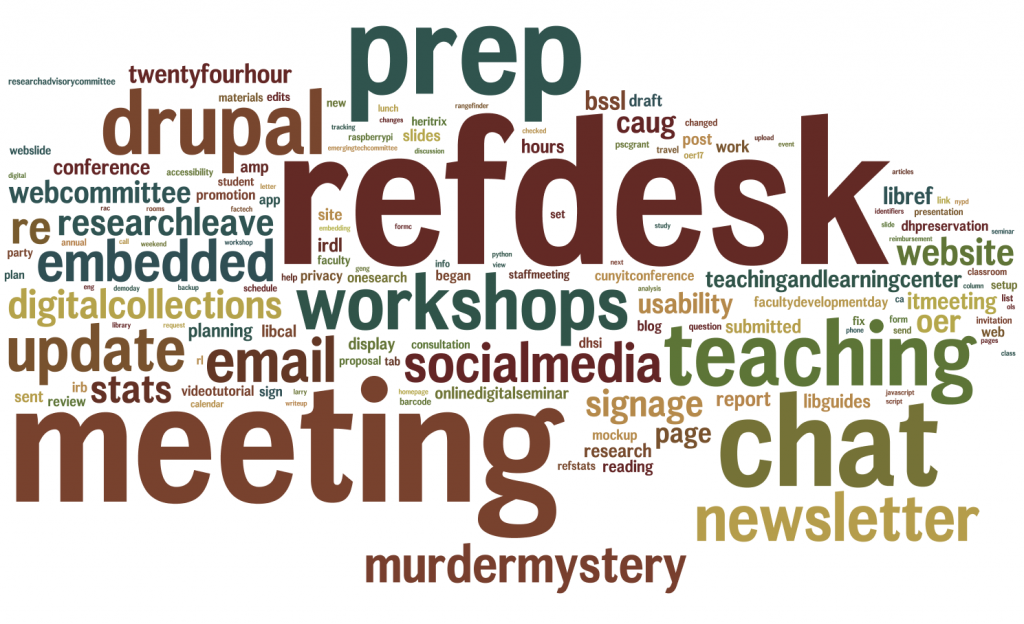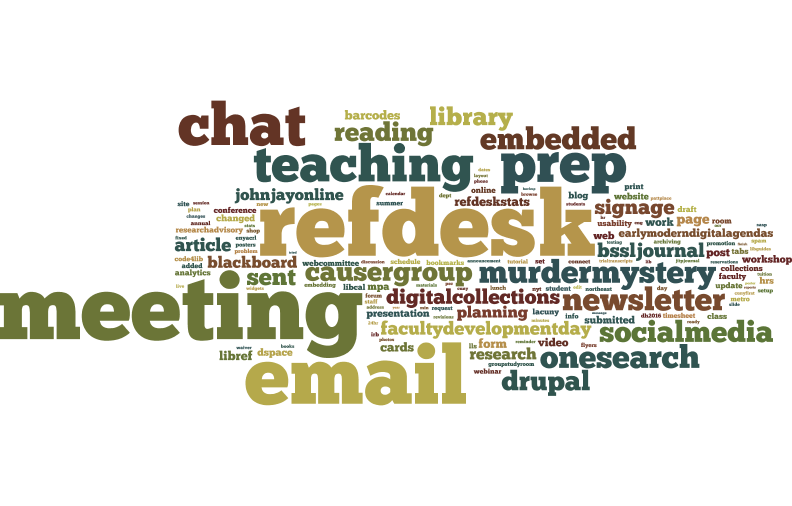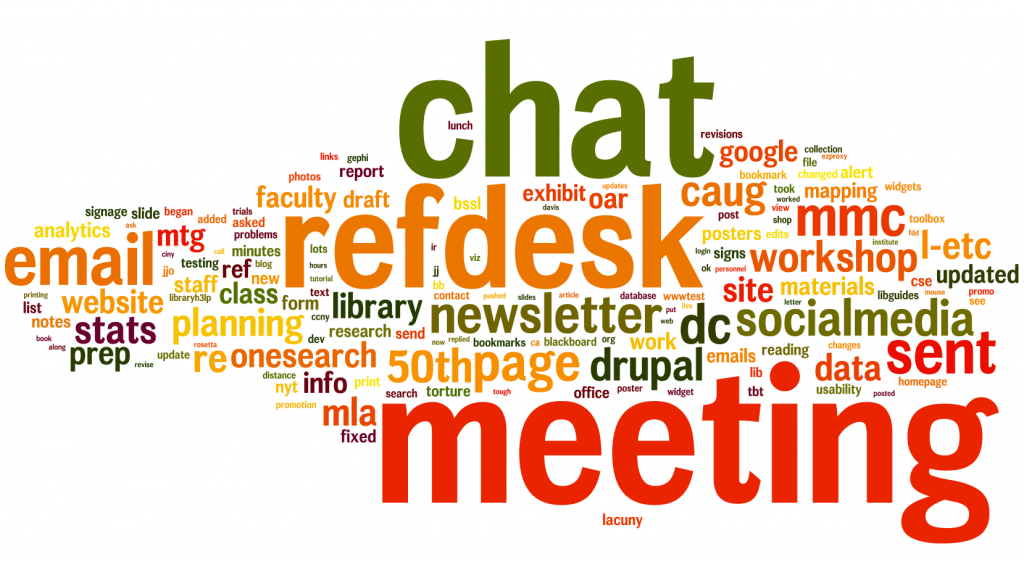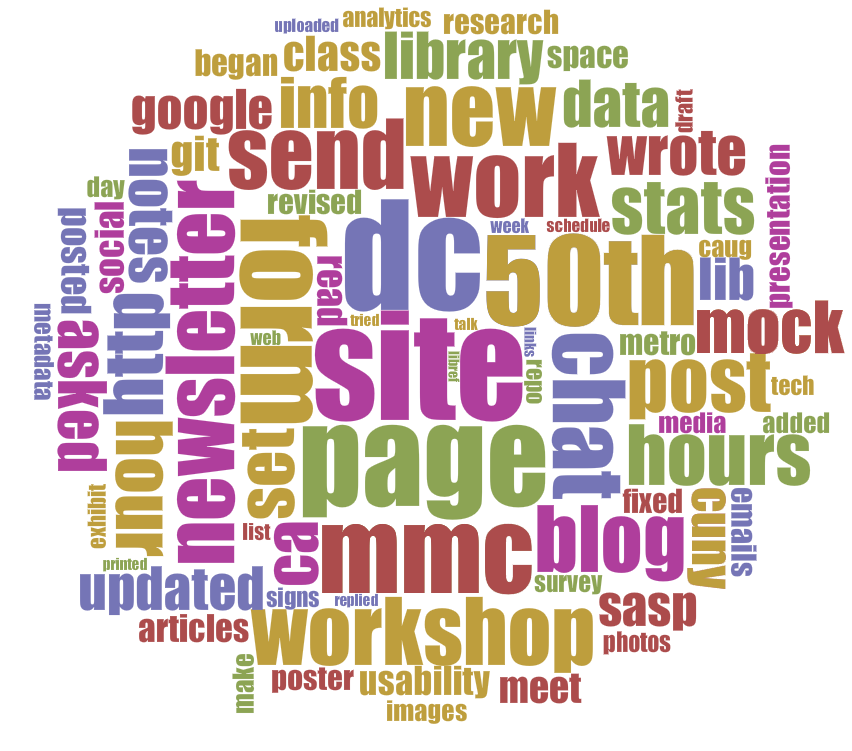
Every year, I take all of my “Done” tasks in my daily work log, normalize them, and run them through a word cloud visualizer to see what I’ve been spending my time doing. This helps me as I write my annual self-evaluation and generally reflect on how I should spend my time in the coming year. It doesn’t have a lot of nuance, though — things that repeat a lot are bigger, even if they don’t loom large in my head.
This year’s word cloud similar to last year’s in that I spent time on regularly occurring activities, such as staffing the Reference Desk and reference chat, being in meetings, emailing people, and teaching/prepping for teaching.
Things I focused on this year especially
- researchleave — this was my first year on the tenure track, and I spent about 4 days a month on RL, which is granted to junior faculty members at CUNY. I spent most of that time gathering data for a web preservation survey project, learning new tech skills for use in an NLP project, writing my Internet Connection column, and writing proposals (my PSC-CUNY grant proposal was accepted!).
- drupal, mockup, update, usability, and webcommittee — our library website just underwent an interface update 7 months in the making. I chaired the library’s Web Committee, made mock-ups, gathered feedback, designed and moderated usability tests, and implemented UI/UX changes on our Drupal site. I also updated a lot of content and promotional materials on the website, a continuous job.
- workshops — I’ve come to realize that running workshops is one of my favorite professional activities. Library basics, Python skills, teaching tips — I love it! I ran a handful of workshops this year aimed at students and at faculty, such as my very well-attended “Privacy tips & tools” workshop.
- socialmedia — it’s extra-big in the cloud because I noted this whenever I made a post, which was more often than before. Several other librarians and I share the Twitter and Facebook accounts; I run our Instagram presence, which I’ve focused on growing. Though spotty over the summer, @johnjaylibrary on Instagram gained 112 new followers, and I created 87 posts over the year. (At first, most of our followers were other libraries. Now they seem to be mostly John Jay students!)
- oer — I spent a fair amount of time this year reading up on Open Educational Resources, before and after attending OER17 in London.
- teachingandlearningcenter — I was part of a year-long, very good “Online/digital teaching” seminar at John Jay’s TLC.
Things to do more of next year
In 2017-18, my intention is to use my research leave time better and more productively. I’ve gotten better at time management in the office (see: the rising prominence of “prep” in these annual word clouds), but I need to build up better habits on my own time, too, as I work on my solo projects. This might also point to a need to collaborate more with other scholars/practitioners — I’m at my best and most productive when working on a team.
Looking again at last year’s “What did I do this year?”, I see that I’d intended to carve out more time for reading. I did do some of that during my research leave, but I have to be a lot more intentional about it or I’ll just focus on hands-on activities.
I also plan to spend more time on professional development, such as improving my JavaScript skills and attending/presenting at more conferences. I think I got conference burn-out last year, but now I miss it. Time to jump back in.




